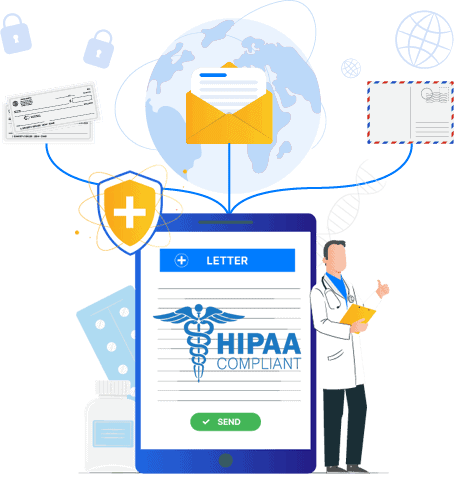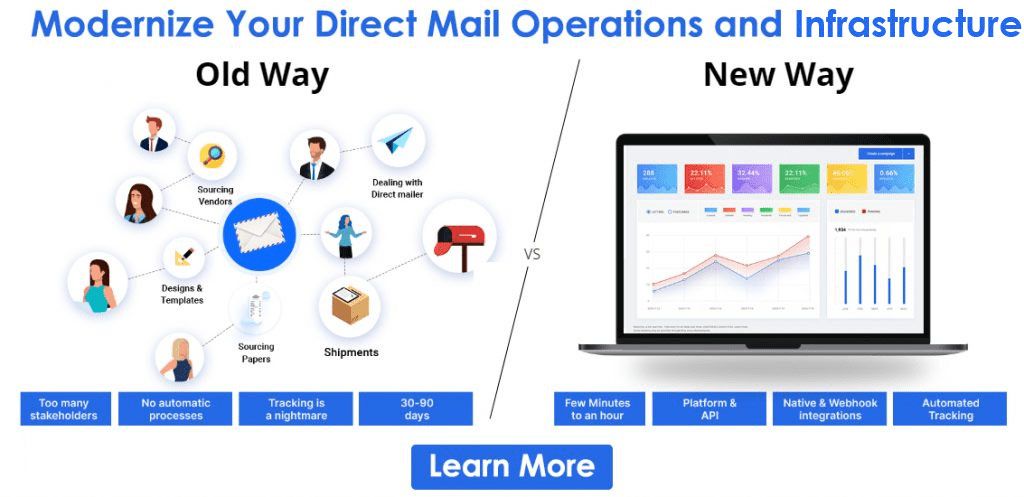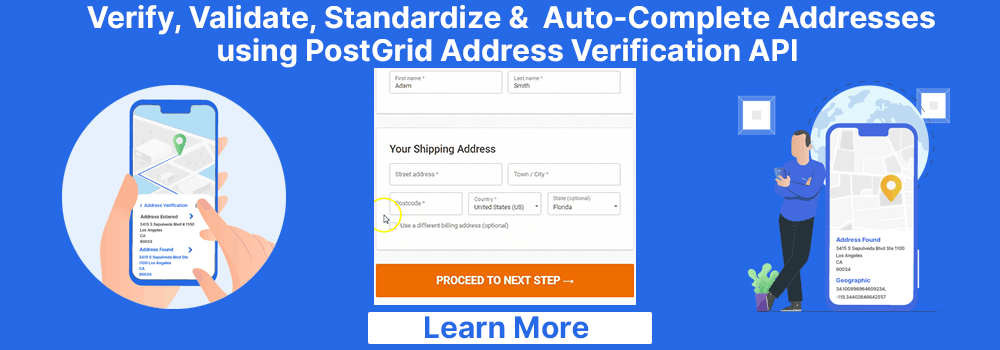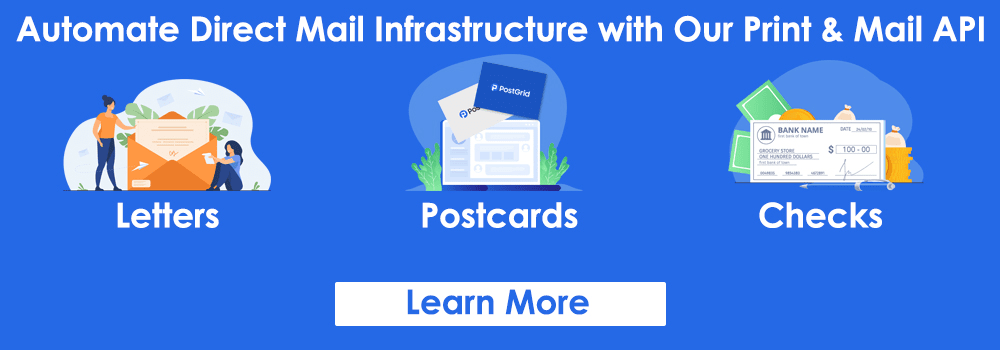Who Enforces HIPAA?
Who Enforces HIPAA? A Comprehensive Guide to Help Healthcare Institutions
If you work in the healthcare industry, you may already know the term HIPAA which stands for Health Insurance Portability and Accountability Act. Since the passing of its Enforcement Rule in 2006, healthcare providers are liable to pay hefty fines for non-compliance. But who enforces HIPAA, and how does it work?

There were 13 violation cases last year where the accused healthcare institutions paid an average of $460,000 in penalties. So what can you do to avoid these fines and follow the correct process?
Also, who is responsible for HIPAA enforcement so you can employ the guidelines they lay down?
Undoubtedly, HIPAA is hard to understand and use within an organization. But we are here to break it down for you!
Let us begin!
What Is HIPAA and How Does It Apply to Healthcare Organizations?
Before we dive deeper into who enforces HIPAA regulations, let us clear the basics!
On August 21, 1996, President Bill Clinton signed HIPAA into law to protect the healthcare coverage of people changing jobs. Its primary purpose was to control the abuse of medical insurance and healthcare delivery. But, it also covers tax breaks and pre-existing health conditions.
So, is there a medical officer who enforces HIPAA privacy rules and other guidelines?
In a way, yes! The HHA’s Office of Civil Rights (OCR) ensures that covered entities comply with HIPAA. But, other departments also have specific roles that we will discuss ahead!
To deeply understand who enforces HIPAA, let us see what covered entities are!
A covered entity is any healthcare institution that must comply with the HIPAA rules according to law. It includes:
- Healthcare providers, like nursing homes, doctors, pharmacies, dentists, psychologists, etc.
- Health insurance agencies, company health plans, HMOs, and government plans, like Medicare and Medicaid, etc. Please do not confuse them with an organization who enforces HIPAA rules.
- Healthcare clearinghouses- This category includes entities processing non-standard medical information from other organizations.
These healthcare and related entities must uphold several security standards to protect the health information documents of their patients. They should employ specific measures to create, maintain, and transmit files securely and confidentially. An agency that is responsible for HIPAA enforcement within covered entities may advise what to do and what to prevent.
At PostGrid, we print and mail medical documents according to HIPAA regulations. These items include:
- Medical history records
- Consent and assent documents
- Patient instruction forms
- Test reports
- Patient care documents
- Operative reports, etc.
Knowing who enforces HIPAA helps organizations choose a secure and reliable direct mail vendor like PostGrid to ship health documents to patients!
Who Enforces HIPAA in the Healthcare Sector?
Many Government agencies regulate HIPAA within healthcare facilities at federal and state levels. Typically, the primary bodies in charge of overlooking the operations of covered entities are:
- HIPAA officer.
- OCR.
- State attorneys.
- Centers for Medicare and Medicaid Services.
Now that you know HIPAA rules are enforced by who, below we discuss their functions in detail:
HIPAA Officer
Every healthcare organization must appoint an internal Chief Privacy Officer (CPO) or HIPAA Officer, irrespective of size! This person acts as the point of contact within the firm for HIPAA compliance. Thus, the first and crucial step after knowing who enforces HIPAA is selecting and hiring a qualified CPO.
Your organization must operate according to the standards the HIPAA officer sets and follow their advice at all times. Another government body who is responsible for HIPAA enforcement can hold the HIPAA officer accountable to oversee the implementation of HIPAA rules internally and externally.
Other duties of the CPO include training staff members, investigating breaches, and helping you adhere to all the relevant laws.
U.S. Department of Health and Human Services- Office of Civil Rights
HHA’s OCR can penalize covered entities if they fail to comply with a HIPAA regulation. It is the most crucial body who enforces HIPAA to decide whether there is a breach and how many penalties an organization owes.
OCR performs regular compliance audits at healthcare facilities. Also, it digs deeper into every breach complaint and files for the relevant sanctions.
Please note that OCR is the only body who enforces HIPAA and refers criminal violations to the Department of Justice for further investigation. Additionally, OCR enforces the Security and Privacy Rules. The Privacy Rule helps OCR protect citizens’ privacy and keep their data safe. Its corrective actions help firms understand who enforces HIPAA and improve how they manage and use this information.
The CPO has to report to a Government body who enforces HIPAA, like OCR. However, OCR does not release data about ongoing and potential investigations publicly. So, it may have internal discussions with the CPO to solve matters and charge a penalty if necessary.
A patient or a healthcare institution’s employee should also be aware of who is responsible for HIPAA enforcement and how. With other complaints, OCR also investigates cases by a patient or employee over suspected violations. The first step is determining whether the breach violates the HIPAA Privacy, Security, or Enforcement Rules.
Once you know who enforces HIPAA Privacy Rules, you can understand that OCR is lenient about HIPAA compliance. It understands that an organization may cause a breach even though they follow all the correct protocols. OCR gets several complaints, but it only substantiates a few.
After discovering a HIPAA violation, OCR tries to resolve the matter with voluntary compliance. It is ideal when the organization accepts there is a breach and agrees to take corrective measures to solve the issue and not repeat it.
State Attorney Generals
After the Health Information Technology for Economic and Clinical Health (HITECH) Act’s implementation in 2009, state attorney generals also became an agency who enforces HIPAA rules. They hold the legal power to help state residents file civil action lawsuits regarding HIPAA violations.
State attorney generals usually work with OCR to take action against the accused healthcare providers. However, you would know that state attorney generals only pursue violation cases of state statutes when you dive deeper into- who enforces HIPAA Privacy Rules. Typically, it is easier to charge and penalize organizations under state laws.
Yet, a few state attorney generals have charged covered entities for HIPAA violations under HITECH AND HIPAA rules. These include attorney generals from the states of California, Indiana, Minnesota, Connecticut, Vermont, New Jersey, Massachusetts, the District of Columbia, and New York. Knowing who enforces HIPAA helps reduce violations wherein you may need to fight against these departments and pay hefty fines.
But, the penalties by state attorney generals are lower than those by OCR, making them a less crucial department who enforces HIPAA regulations. The maximum penalty against a healthcare provider under the HITECH Act is $25,000 for every violation in a year.
Centers for Medicare and Medicaid Services (CMS)
The CMS administers compliance review audits or programs on behalf of the HHS. The HHS may exclude some non-compliant healthcare providers from participating in Medicare and Medicaid Services. Most people that know who enforces HIPAA may not consider the CMS. But its role is equally significant as the other departments!
Please remember that the CMS is another department who enforces HIPAA through several sub-bodies or offices. For instance, the Office of E-Health Standards and Services overlooks the Transactions and Code Sets and National Identifiers under HIPAA. Any person can file complaints regarding these Identifiers regulations via an offline form or digitally!
When you learn who enforces HIPAA, it can be puzzling at first. Hence, try getting further details on every department, including the CMS, by talking to your CPO.
In other words, the CMS enforces compliance with HIPAA’s Administrative Simplification Regulations. These rules improve the efficiency of healthcare delivery within firms, decreasing healthcare costs significantly!
The CMS’s body- who enforces HIPAA Privacy Rules, investigates the cases against covered entities that do not follow the HIPAA law but doesn’t often charge any penalties. If it finds a violation, it instructs the entity to resolve the problem within a specified time to achieve compliance. Fines only come into the picture when a healthcare provider refuses to acknowledge the issue and do something.
What Happens If a Healthcare Firm Violates HIPAA?
Your first and utmost responsibility is to seek legal advice from a legit Government department- who is responsible for HIPAA enforcement and violations. Non-compliance with the HIPAA Privacy, Breach Notification, Enforcement, and Security Rules can cost your organization a fortune and hurt your reputation.
A data breach or not providing patients access to their medical records are the most commonly-occurred violations subject to the OCR interventions. Hence, try operating according to your CPO, who enforces HIPAA within your firm in the following matters:
- Inadequate data encryption.
- Accessing patient information from unsecured facilities.
- Poor employee training programs.
- Improper record disposal.
- Loss or theft of devices containing confidential data.
- Unauthorized data transmission.
- Phishing or hacking.
A department or a person who enforces HIPAA Privacy Rules may let go of minor violations if you prove you can avoid the same problem in the future. You may receive warnings and must take up a comprehensive HIPAA training program.
For more severe violations, OCR can report you to the licensing board to revoke your license or place restrictions on your functioning methods. Below are the penalties a Government body who enforces HIPAA can charge:
HIPAA Civil Violations
These violations belong to four categories, depending on their severity and the actions you take to rectify the situations. These categories are:
- Knowingly violating HIPAA regulations: If a body who enforces HIPAA Privacy Rules finds you guilty of knowingly violating a rule, you may need to pay $100 to $50,000 per violation. The maximum penalty limit for a calendar year is $25,000 for recurring violations.
- Reasonable causes: Penalties for such reasons are between $1,000 and $50,000 per violation, with a maximum penalty limit of $100,000.
- Willful neglect corrected: If a department who enforces HIPAA investigates a breach because of your organization’s ignorance, you may need to pay $10,000 to $50,000 per violation. Please note that you still need to correct the problem within a specified period to avoid paying more. The maximum penalty limit under this category is $250,000 for repeat violations.
- Willful neglect, not corrected: If you learn who enforces HIPAA, you would know that such a violation can cost you $50,000. You must resolve the issue within 30 days to avoid such hefty fines. The maximum penalty is $1.50 million for repeat violations.
HIPAA Criminal Penalties
You can get away with civil offenses with a penalty, but criminal violations have more severe repercussions. We have enlisted these penalties below:
- Individuals and entities that knowingly get and disclose Protected Health Information (PHI) may need to pay a penalty of $50,000 and serve one year of imprisonment. After you understand HIPAA rules are enforced by who, try to seek legal advice for such situations if you have adequate proof that you are not guilty.
- Offenses under pretenses warrant fines up to $100,000 and five years in prison.
- OCR’s body- who enforces HIPAA, charges a penalty of up to $250,000 and ten years of imprisonment for offenses with the intent to trade PHI for commercial benefit or personal gain.
Using PostGrid’s Direct Mail Solutions to Send Medical Documents Legally
Once you get all the information on who enforces HIPAA and the penalties, you must draft proper and lawful standards. PostGrid’s direct mail services are HIPAA-compliant and let you print and ship documents containing PHI legally and securely.
You require a mechanism that lets you follow the HIPAA rules from the start, i.e., the stage when you draft a medical document, like an invoice. Our direct mail API and dashboard let you use our pre-built templates to create your mail items. Also, you can integrate PostGrid within your patient management or other CRM to fetch patient data and draft personalized documents in seconds.
We understand that learning who enforces HIPAA and adhering to the guidelines is not child’s play. Thus, PostGrid takes one thing off your plate—secure printing and mailing healthcare documents! You can create and save files with PostGrid—and print and ship them to the patients on demand or in bulk.
Learning who is responsible for HIPAA enforcement is not always enough. You must take the correct steps to follow the rules, and PostGRid brings you one step closer. One of our healthcare clients, ‘PharmD Live’ wanted safe and private direct mailing solutions to promote Medication Therapy. There were several challenges, like:
- Educating patients about remote patient monitoring and its advantages.
- Sending customized direct mail collaterals to cater to the recipient’s patient journey with the client.
- Shipping personalized updates regarding remote patient monitoring via snail mail.
PostGrid helped the client know who enforces HIPAA and enabled them to create, produce, and ship triggered mailpieces. The company tested several delivery times and postcard sizes to find the most profitable combination. Also, they personalized mailers with health-related news, including consent letters, requests, invoices, welcome packages, etc.
Conclusion
It is complicated to learn who is responsible for HIPAA enforcement and how the law works, but not impossible. HIPAA-compliant print and mail vendors like PostGrid help you manage your patient data, create custom documents, and distribute them effectively!
Request a demo to discuss who enforces HIPAA and how PostGrid helps your healthcare organization stay HIPAA-compliant!
Ready to Get Started?
Start transforming and automating your offline communications with PostGrid
The post Who Enforces HIPAA? appeared first on PostGrid.
source https://www.postgrid.com/who-enforces-hipaa/



Comments
Post a Comment